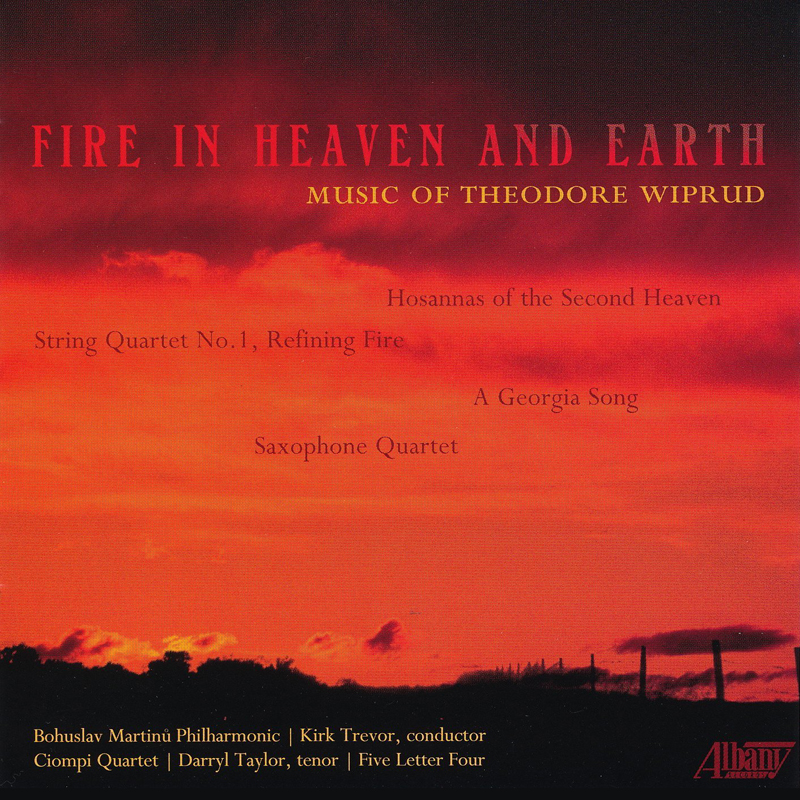Until recently, few were aware of its existence. But suddenly, The Diary of One Who Disappeared, composed by Leos Janacek from 1917 to 1920, is cropping up everywhere. It was performed at both Carnegie Hall and BAM last season, and I’ve heard both of the performances mounted in New York this season (at the 92nd Street Y, and Brooklyn Art Song Society). I’ve been floored every time – not only by the piece itself, but at seeing that after a century of its own disappearance, this former curiosity has somehow become vibrant repertory.
How and why does that happen? Why do some pieces never get past their premieres, while others become staples, and yet others find their audience only decades after their creation?
The Diary comes out of a time of experiments in form, of vocal pieces that defy categories – pieces like Schoenberg’s Pierrot Lunaire of 1912 and Stravinsky’s l’Histoire du Soldat of 1918. The Diary is basically an extended song cycle for tenor and piano, but other elements keep floating in. An alto takes a few of the songs. There are fleeting sounds from an offstage trio of women. There’s an extended piano solo. Whatever occurred to the composer, it seems, went in, regardless of precedent or practicality.
I believe that’s actually one reason for the Diary’s return. It may be impractical, in a category by itself, but change out the first two digits in the year of composition, and it would fit right into the Prototype Festival of new opera, with all its unusual configurations.
Stylistically too, the Diary is a match for the wildest imaginings of today’s young composers. Many composers become more conservative as they age; they apply the lessons of the decades, they become more consistent, and sometimes less inspired. But a few composers become more unpredictable, and Janacek is their poster boy. He really hit his stride in his 50s by pushing expression to an extreme, and most of his works in the regular repertory – in particular his operas – come from his last two decades. By the time he composed this Diary in his mid-60s, it was anything goes – extremes of register (often both ends at the same time), of texture from spare to clotted, of tempo from floating to frenzied.
The story itself is not so original – a hard-working country boy falls for a Roma girl and leaves his family forever. Echoes of Carmen for sure, with tired ethnic stereotypes. But the poetry, and even more so the music, is psychologically complex and unsparing. Our protagonist veers from denial to obsession, self-hatred to euphoria, cruelty to nostalgia. What does it say about our time that a roller coaster like this is now speaking to us?
I believe that the key to any music’s success with audiences is its ability to embody and evoke listeners’ own experiences: that uncanny feeling you get that Bach composed his Chaconne to tell your life story; that the opening melody of the Pastoral Symphony is just the way you feel on a fine day. It’s as though our musical perception is a sympathetic nervous system, enabling us to experience what the composer did – only it’s actually the other way around: the music reflects back our own experiences. What we hear may not have much at all to do with what the composer was thinking or feeling.
The pieces that stay in the repertory, from Monteverdi on down, have a flow of ideas and a set of gestures that somehow, mysteriously, receive and contain human feelings that stay the same from generation to generation, and also conform to those new feelings that evolve in our changing societies. When human experience changes enough that older works no longer sound like our own thoughts and feelings, they are no longer needed in general circulation; they become the province of musicologists. This is how some works become dated, or heard only in their own countries – the concert music of Victor Herbert or Edward MacDowell, for instance, or William Walton, or Ludwig Spohr.
Conversely, when human experience changes enough that a formerly forgotten work sounds like our own time, it has a chance at a comeback. Gustav Mahler sensed that it would be the fate of his own intensely psychological music, and indeed, his time did come, some half century after his death, thanks in no small part to Leonard Bernstein. Janacek’s psychologically acute operas found their international audience a full generation after the composer’s death, thanks to the conductor Charles Mackerras. Possibly, we are now witnessing this most unconventional of his works, the Diary of One Who Disappeared, finding its time, a century after its completion, with multiple new champions.





